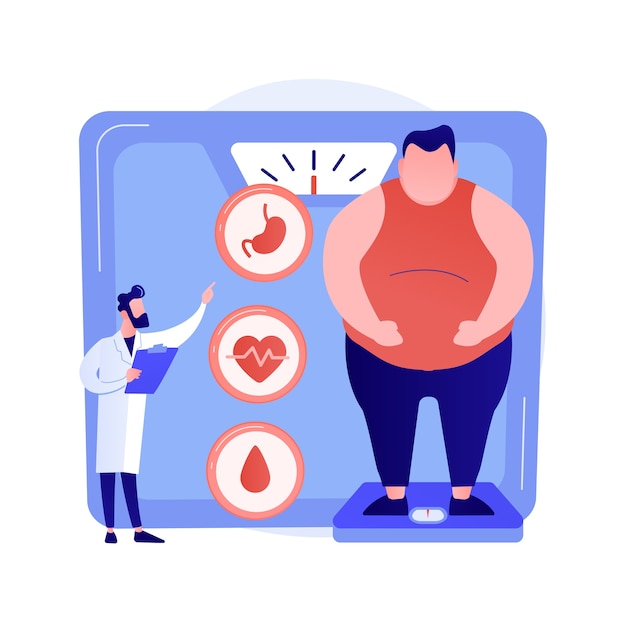
Gaining weight during recovery from alcohol or drug addiction can be a common issue. After overcoming addiction, some people face the challenge of weight gain, with nearly 65% experiencing this and about 20% becoming obese. This can escalate health problems like diabetes, high blood pressure, and heart disease.
### Why Weight Gain Happens After Addiction Rehab
Weight gain during recovery can occur for several reasons. When someone quits substances, the dopamine receptors in the brain—responsible for reward and pleasure—decrease in number. This results in emotional challenges and can make it tempting to turn to high-fat, processed foods to replicate the dopamine rush that drugs previously provided. Foods heavy in fat, sugar, and salt stimulate the same brain reward centers as substances, triggering the release of feel-good chemicals like dopamine. This similarity can lead to overeating and subsequent weight gain.
### Creating a Healthy Diet During Recovery
To maintain your health and energy during recovery, it’s important to focus on a balanced diet. Include plenty of fruits, vegetables, and whole, unprocessed foods in your daily meals. Eating three nutritious meals a day, along with light snacks, can help keep your energy stable and support the brain in producing mood-boosting neurotransmitters like dopamine and serotonin. A diet rich in vitamins, minerals, and nutrients—especially vitamin B, vitamin D, amino acids, and omega-3 fatty acids—can be particularly beneficial. Pairing healthy eating with regular physical activity can also curb binge eating and promote long-term well-being.
### Connection Between Addiction and Physical Health
Substance abuse not only affects mental health but also has a profound impact on physical well-being. Active addiction often disrupts normal eating patterns, contributing to malnutrition, sleep problems, and significant weight loss. Once recovery begins, the body starts to repair itself, but it can shift into fat storage mode due to prior nutrient deficiencies. Providing the body with proper nutrition during recovery helps heal metabolic and organ functions while supporting mental health.
### Preventing Relapse Through Better Habits
Unhealthy eating habits can increase the risk of relapse. Some recovering addicts might confuse hunger pangs with drug cravings, making it crucial to focus on nutritious meals and snacks. Steering clear of caffeine, nicotine, and processed foods can also improve recovery outcomes. Supplements like calcium, vitamins, minerals, and natural sleep aids can address nutrient deficits and help manage sleep issues.
### Tips for Avoiding Weight Gain in Recovery
A heightened appetite is common during recovery as the body adjusts to the absence of stimulants. Dehydration, which often occurs during addiction, can also lead to mistaking thirst for hunger. Staying hydrated and consuming low-fat, nutrient-dense foods can prevent overeating. Focus on eating complex carbs, proteins, and fiber-rich foods while limiting simple sugars and unhealthy fats. Adding supplements such as vitamins A, C, and B-complex, along with zinc, can provide extra support for your body during this time.
### Understanding Food Addiction in Recovery
Some people may develop a dependency on food after giving up drugs or alcohol, leading to binge eating or emotional eating habits. Processed, high-sugar, fatty junk foods activate the same reward centers in the brain as drugs, replacing one addiction with another. Stress, emotional instability, and a lack of dopamine rushes can make unhealthy eating more tempting, creating a cycle that is hard to break.
### Breaking the Cycle of Overeating
Stress, untreated depression, and anxiety can all contribute to overeating. Many recovering addicts struggle with nutrient deficiencies that worsen mood disorders, further increasing the risk of turning to food for comfort. Addressing these emotional and mental health challenges with proper treatment can help prevent excessive food consumption. Avoiding junk foods rich in fat, sugar, and salt is key, as these can “hijack” taste preferences and lead to further cravings.
### Staying Healthy and Avoiding Sobriety Weight Gain
Weight gain during recovery often happens because food begins replacing substances in activating the brain’s reward centers. To prevent this, focus on better stress management, emotional regulation, and willpower. Incorporating regular exercise into your routine—such as 30 minutes of moderate physical activity at least five days a week, as recommended by the CDC—can improve mood, boost your metabolism, and burn extra calories, helping maintain a healthy weight.
### Practicing Mindfulness After Recovery
Mindfulness and self-discipline are vital for preventing relapse and maintaining healthy habits. Being aware of emotional triggers and staying strong against cravings can make a significant difference in both recovery success and long-term health. Making intentional choices and staying consistent are key steps to thriving through sobriety and avoiding the pitfalls of post-addiction weight gain.